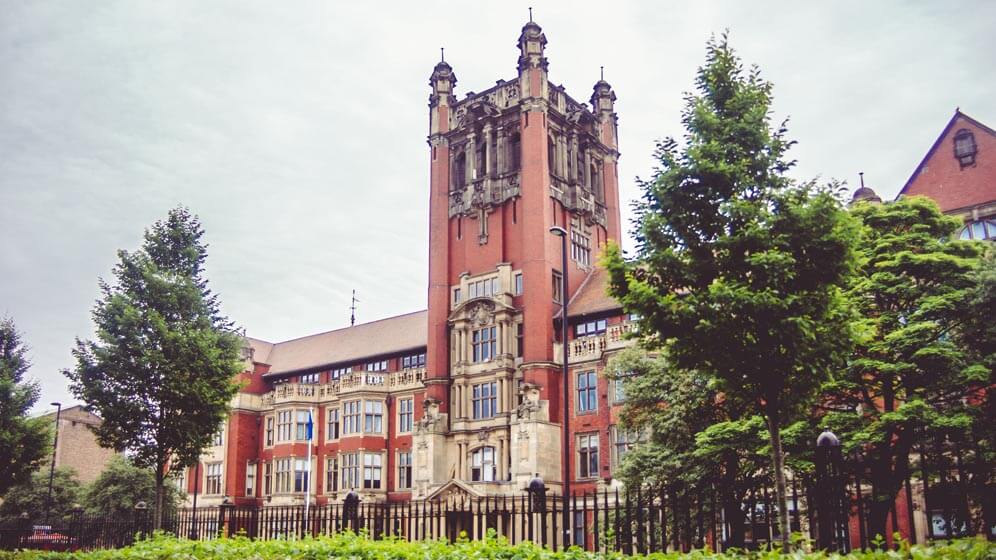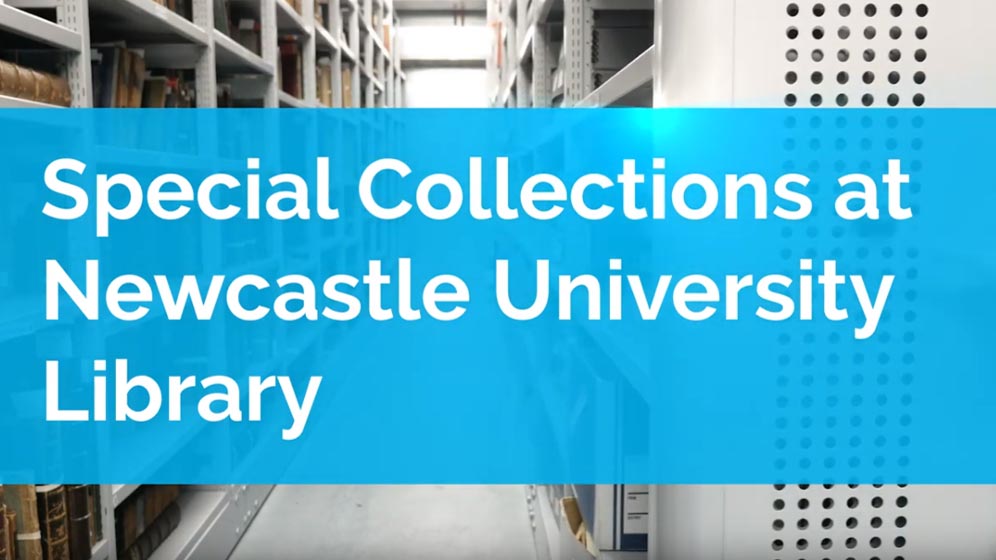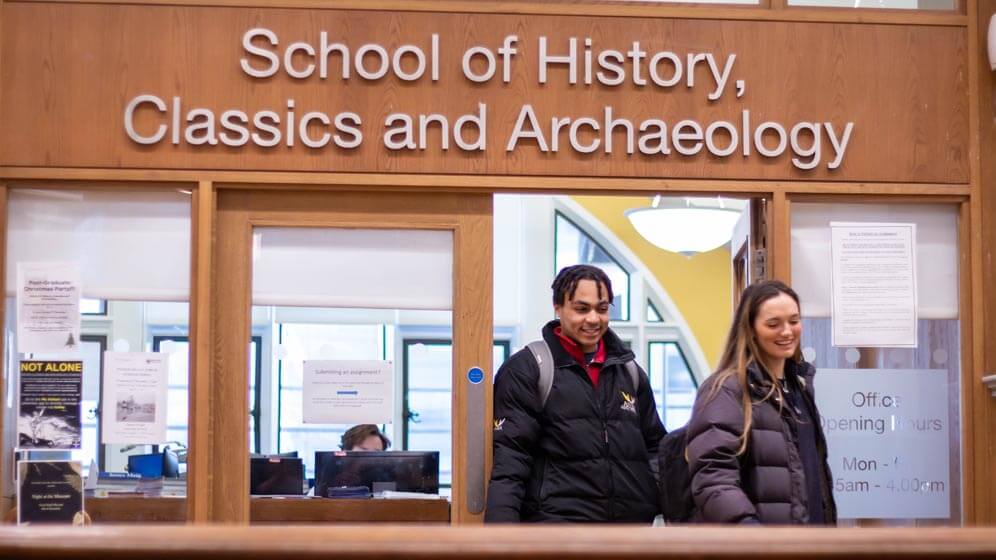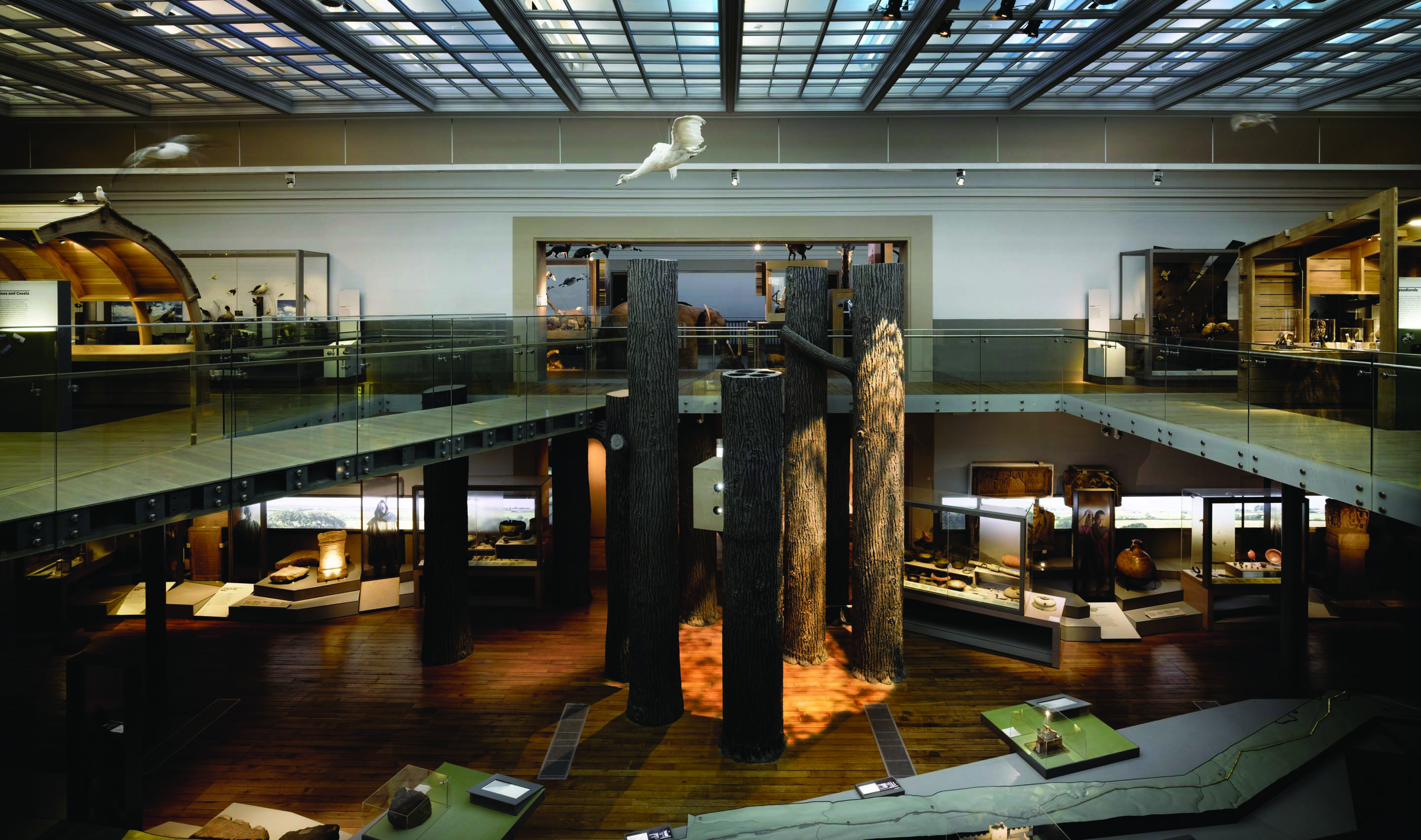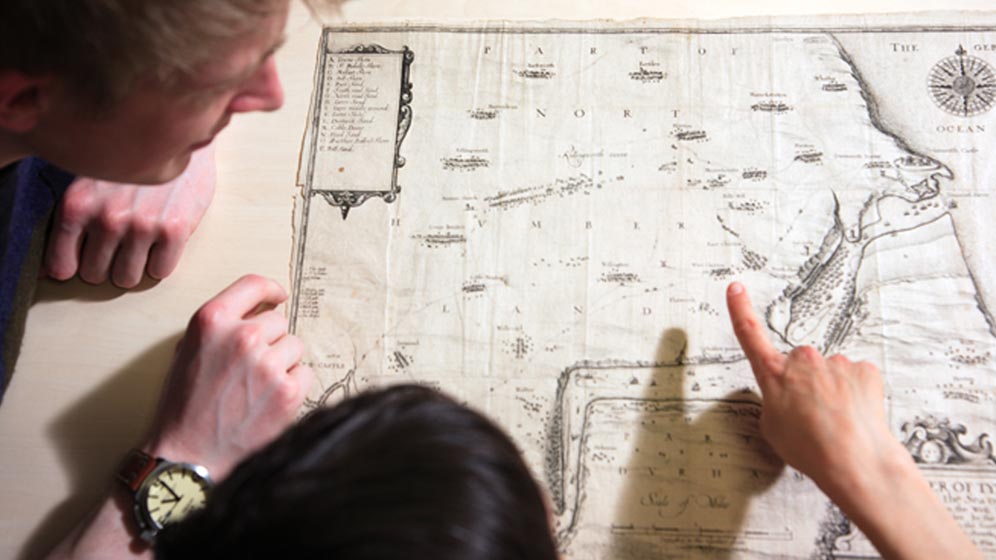History BA Honours
- UCAS code: V100
- Full time
- 3 years
This History degree allows you to explore and analyse historical societies across a range of periods and regions.
You are currently viewing course information for entry year: 2026
Next start date:
- September 2026
UCAS Institution name and code:
- NEWC / N21
Course overview
This three-year History BA Honours degree focuses on developing your skills and abilities to critically analyse historical topics. You'll graduate as a confident and independent learner, ready for your future.
You'll learn to evaluate competing interpretations of history, and how to formulate, support and defend your own arguments and opinions.
You'll explore themes such as:
- revolution
- slavery
- radicalism
- medical history
- religion
- public engagement with the past
through a wide range of modules. These focus on a variety of time periods, geographies and cultures.
You'll study in a vibrant learning community, with scholars at the forefront of their fields. You'll also improve your research skills, completing a range of research projects during your degree.
You can follow your interests with opportunities to take modules from other subject areas such as archaeology, classics, politics, philosophy or a modern language at every stage of your degree.
READ MORE
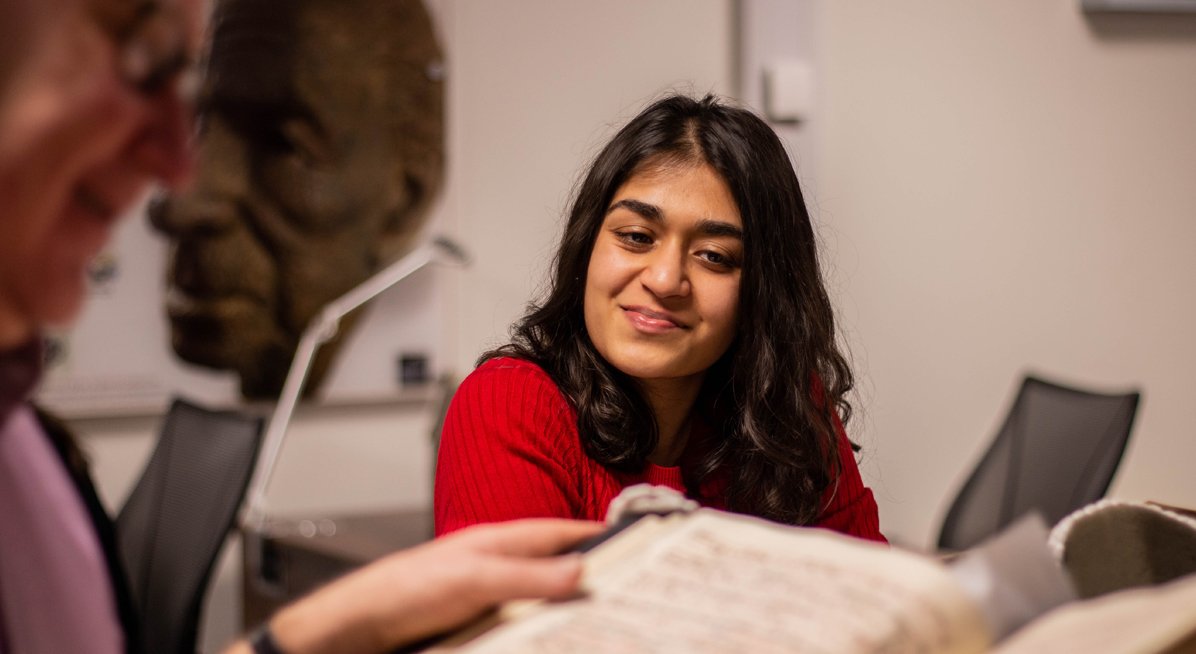
Your course and study experience - disclaimers and terms and conditions
Please rest assured we make all reasonable efforts to provide you with the programmes, services and facilities described. However, it may be necessary to make changes due to significant disruption, for example in response to Covid-19.
View our Academic experience page, which gives information about your Newcastle University study experience for the academic year 2025-26.
See our terms and conditions and student complaints information, which gives details of circumstances that may lead to changes to programmes, modules or University services.
Quality and ranking
Professional accreditation and recognition
All professional accreditations are reviewed regularly by their professional body.
Modules and learning
Modules
The information below is intended to provide an example of what you will study.
Most degrees are divided into stages. Each stage lasts for one academic year, and you'll complete modules totalling 120 credits by the end of each stage.
Our teaching is informed by research. Course content may change periodically to reflect developments in the discipline, the requirements of external bodies and partners, and student feedback.
Optional module availability
Student demand for optional modules may affect availability.
Full details of the modules on offer will be published through the Programme Regulations and Specifications ahead of each academic year. This usually happens in May.
To find out more please see our terms and conditions
The compulsory modules will help you transition from school to university. Skills training is embedded throughout, enabling you to ‘learn by doing’ as you study. You’ll examine primary sources and delve into the specialisms of your lecturers. You'll probe into the evolution of historical thinking over time.
In addition, you’ll have the choice of optional modules ranging widely across time and geographies. You'll be able to select the topics that fascinate you most. You also have the option to choose innovative cross-disciplinary modules or modules from other disciplines such as languages.
Modules
| Compulsory Modules | Credits |
|---|---|
| Evidence and Argument | 20 |
| Historical Sources and Methods | 20 |
| What is History For? | 20 |
| Modules | Credits |
|---|---|
| History Lab I | 20 |
| History Lab II | 20 |
| Introduction to Public History | 20 |
The compulsory modules will prepare you for independent research. You’ll build on the skills and knowledge you developed in Stage 1 and you'll begin preparation for your dissertation in Stage 3.
Seminar discussions will help test and refine your ideas and increase your confidence.
You’ll have the choice of a very wide range of optional modules. These modules focus on a time period or geographic range or take a comparative look at a common theme or specific event from a different angle.
Your modules span a range of periods to ensure that you have a good breath of historical understanding.
You'll also have the option to choose modules from outside of History.
Modules
| Compulsory Modules | Credits |
|---|---|
| Crafting History: Developing a Research Proposal | 20 |
You’ll put your independent learning skills into practice as you undertake your dissertation. You’ll build on your knowledge and skills so far, with the guidance and support of your supervisor.
You’ll take ‘Reading History’ where you'll critically reflect on the discipline and your own ideas through close study of an influential work. Our module on ‘Public History' is recommended to broaden your horizons by considering the uses and abuses of history in public life.
Optional modules will deepen your knowledge through intensive small group seminar discussion of primary sources.
Modules
| Compulsory Modules | Credits |
|---|---|
| Reading History | 20 |
| Writing History | 40 |
We base these figures and graphs on the most up-to-date information available to us. They are based on the modules chosen by our students in 2024-25.
Teaching time is made up of:
- scheduled learning and teaching activities. These are timetabled activities with a member of staff present.
- structured guided learning. These are activities developed by staff to support engagement with module learning. Students or groups of students undertake these activities without direct staff participation or supervision
Teaching and assessment
Teaching methods
Most of your course will be delivered through lectures, seminars and workshops.
Seminars form a more important part of your education in later stages, and help build our learning community, where you'll debate with peers and refine your ideas.
Assessment methods
You'll be assessed through a combination of:
-
Coursework
-
Dissertation or research project
-
Essays
-
Examinations – practical or online
-
Portfolio submission
-
Presentations
-
Projects
Skills and experience
Business skills
You'll be able to boost your employability and develop enterprising behaviours, attributes and skills through two major career development modules.
Research skills
Independent research training is embedded throughout our History degree. This gives you the chance to develop your research skills – learning how to critically assess evidence and evaluate different interpretations – from your first year of study to your final-year dissertation.
Opportunities
Study Abroad
Experience life in another country by choosing to study abroad as part of your degree. You’ll be encouraged to embrace fun and challenging experiences, make connections with new communities and graduate as a globally aware professional, ready for your future.
You can choose to spend a year studying at a partner institution overseas.
If you choose to study abroad, it will extend your degree by a year.
Find out more about work placements.
Work placement
Get career ready with a work placement and leave as a confident professional in your field. You can apply to spend 9 to 12 months working in any organisation in the world, and receive University support from our dedicated team to secure your dream placement. Work placements take place between stages 2 and 3.
You'll gain first-hand experience of working in the sector, putting your learning into practice and developing your professional expertise.
If you choose to take a work placement, it will extend your degree by a year, and your degree title will show you have achieved the placement year. A work placement is not available if you're spending a year studying abroad. Placements are subject to availability.
Facilities and environment
Facilities
You'll be based in the School of History, Classics and Archaeology, in the historic Armstrong Building at our city-centre campus.
You'll have access to a range of on-campus facilities, including:
- the Philip Robinson University Library, which houses over 800,000 books and provides access to ca. 1.8m e-books
- Special Collections & Archives – a rich collection of archival material, historical medical texts and rare books
- The Great North Museum: Hancock, our on-campus museum which holds an extensive collection of Greek, Roman, and Etruscan artefacts
Find out more about the School of History, Classics and Archaeology
Support
You'll have the support of an academic member of staff as a personal tutor throughout your degree to help with academic and personal issues.
Peer mentors will help you in your first year. They are fellow students who can help you settle in and answer any questions you have when starting university.
Your future
Our graduates go on to a diverse range of careers including:
- Education
- Journalism
- Government and policy work
- Finance and legal services
- Charity and heritage sectors
Read more about graduate career paths
Follow in their footsteps

- Name: Zoe
- Nationality: British
- Graduated: 2018
- Now working as: Junior Political Reporter
"Writing and research skills are fundamental for any journalist, and specialising in contemporary political history armed me with knowledge that is directly applicable for my work as a political reporter"
Find out what Zoe liked the most about studying History at Newcastle University and how this degree helped her in her career.
Sorry, you need JavaScript to view this video
Careers support
Our Careers Service is one of the largest and best in the country, and we have strong links with employers. We provide an extensive range of opportunities to all students through our ncl+ initiative.
Visit our Careers Service website
Recognition of professional qualifications outside of the UK
If you’re studying an accredited degree and thinking about working in Europe after you graduate, the best place to find current information is the UK Government’s guidance on recognition of UK professional qualifications in EU member states. This official resource explains whether your profession is regulated in another country, what steps you need to take, and which organisation you should contact.
Entry requirements
All candidates are considered on an individual basis and we accept a broad range of qualifications.
The entrance requirements and offers below apply to 2026 entry.
| A-Level | |
|---|---|
| International Baccalaureate | |
|---|---|
Other UK and the Republic of Ireland qualifications
Alternative offers at Newcastle
Through one of our contextual or alternative offer routes, you could receive an offer of up to three grades lower than the typical requirements.
Contextual offers
We use certain contextual data from your UCAS form, alongside your application, to consider challenges that you may have faced in your education and the potential effect this may have had on your qualifications. This means you may be eligible to receive a lower contextual offer.
PARTNERS offers
One of the largest and longest support entry routes to university of its kind for students from underrepresented backgrounds. We support applicants from application through to study.
Realising Opportunities offers
A unique programme delivered in collaboration with 10 leading, research-intensive universities in the UK. The programme is open to students in Year 12/first year of college.
Pathways to Newcastle offers
Pathways to Newcastle, our national skills entry route, is available for specific subject areas.
High Performance Athletes
We support promising athletes at the application stage, who compete in regional, national or international levels in their sport.
Qualifications from outside the UK
English Language requirements
Entrance courses (INTO)
International Pathway courses are specialist programmes designed for international students who want to study in the UK. We provide a range of study options for international students in partnership with INTO.
These courses are specifically designed for international students who want to study in the UK and progress onto one of our undergraduate degrees. Our International Study Centre, has a range of study options including:
- International Foundation
- International Year One
- English Language courses
Find out more about International Pathway courses
Admissions policy
This policy applies to all undergraduate and postgraduate admissions at Newcastle University. It is intended to provide information about our admissions policies and procedures to applicants and potential applicants, to their advisors and family members, and to staff of the University.
University Admissions Policy and related policies and procedures
Credit transfer and Recognition of Prior Learning
Recognition of Prior Learning (RPL) can allow you to convert existing relevant university-level knowledge, skills and experience into credits towards a qualification. Find out more about the RPL policy which may apply to this course.
Tuition fees and scholarships
Tuition fees for academic year 2026-2027
The 2026 entry home fees have not yet been confirmed.
| Qualification: BA Honours | |
|---|---|
|
Home students full time 3 years |
Tuition fees (Year 1)
Not set |
|
International students full time 3 years |
Tuition fees (Year 1)
24,500 |
Year abroad and additional costs
For programmes where you can spend a year on a work placement or studying abroad, you will receive a significant fee reduction for that year.
Some of our degrees involve additional costs which are not covered by your tuition fees.
Scholarships
Find out more about:
Open days and events
You'll have a number of opportunities to meet us throughout the year at our on-campus and virtual open days.
You'll be able to:
- explore our beautiful campus
- find out about our vibrant city
- discover what students think about studying at Newcastle
You'll also have the opportunity to speak to academic staff and find out more about the subjects you're interested in.
Find out about how you can visit Newcastle in person and virtually.
We regularly travel overseas to meet with students interested in studying at Newcastle University. Visit our events calendar to find out when we're visiting your region.
How to apply
Apply through UCAS
To apply for undergraduate study at Newcastle University, you must use the online application system managed by the Universities and Colleges Admissions Service (UCAS). All UK schools and colleges, and a small number of EU and international establishments, are registered with UCAS. You will need:
- the UCAS name and institution codes for Newcastle University (NEWC/N21)
- the UCAS code for the course you want to apply for
- the UCAS 'buzzword' for your school or college
If you are applying independently, or are applying from a school or college which is not registered to manage applications, you will still use the Apply system. You will not need a buzzword.
Apply through UCASApply through an agent
International students often apply to us through an agent. Have a look at our recommended agents and get in touch with them.
Get in touch
By phone
Call us on +44 (0) 191 208 3333 and press option 1. Our opening hours are Monday to Friday 10am until 4pm.
Live chat
Our NCL chatbot might be able to give you an answer straight away. If not, it’ll direct you to someone who can help.
You'll find our NCL chatbot in the bottom right of this page.
Online
Chat to our students
Choosing a university is a big decision. If you've got questions about a particular course, student life or the city of Newcastle, why not chat to our friendly students or graduates!
Keep updated
We regularly send email updates and extra information about the University.
Receive regular updates by email





